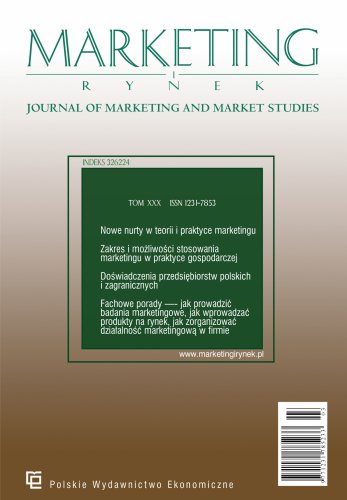For several decades, the ideas of corporate social and environmental responsibility and the principles of sustainable development have been developed and promoted. The ecological awareness of societies is growing as well as the pressure of various groups of stakeholders who expect companies to operate in an environment-friendly, climate-friendly manner, for the sake of local communities and society. In order to meet these trends and requirements, enterprises undertake various CSR activities, also using green marketing tools. On the one hand, it is an opportunity to win the favor of eco-consumers and other groups of stakeholders who value a healthy environment and building the so-called green reputation. On the other hand, it is a threat to reputation in the case of committing certain abuses and manipulations, referred to as greenwashing. The decisive factor for the final effect is the manner and scope of using the principles of green marketing. The aim of the article is to indicate the effects of improper use of green marketing tools, which may lead to the generation of another threat to the company's reputation, called green reputation risk. The first part of the article discusses the use of green marketing as a tool for building the desired green reputation of the company. The second part presents the essence and specificity of the so-called green reputational risk as a result of greenwashing practices. The summary identifies ways to limit these practices and avoid potential sources of green risk.
Keywords: green marketing; corporate reputation; greenwashing; green reputation risk

